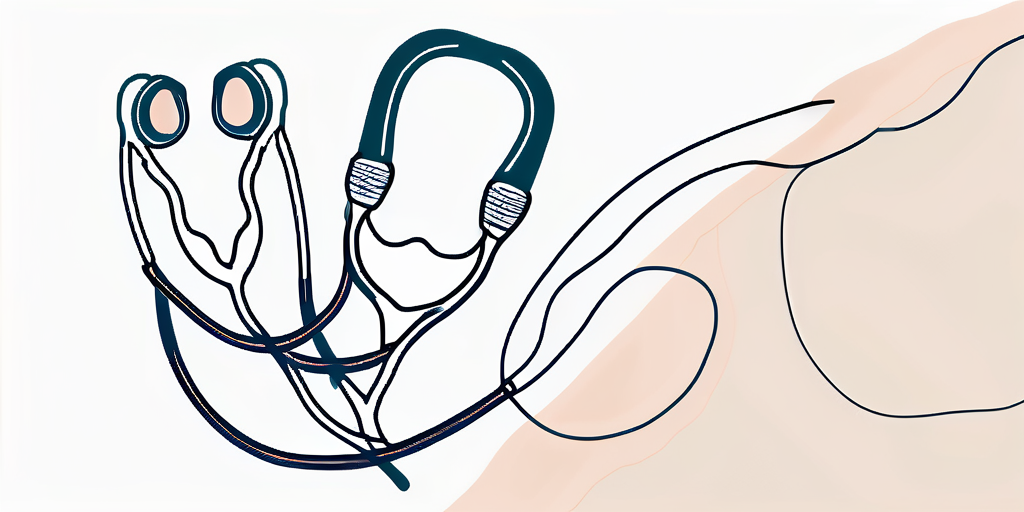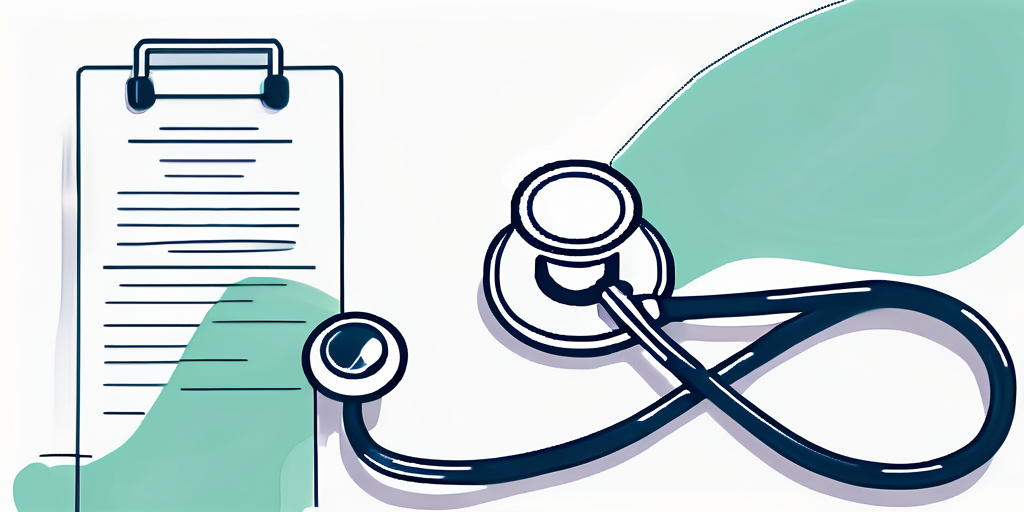What is a Gynaecologist?
Before diving into the search for a top gynaecologist, it’s important to understand their role in women’s healthcare. Gynecologists specialize in the female reproductive system, providing a wide range of services to support women’s health at every stage of life. They play a crucial role in preventive care, early detection of diseases, and treatment of conditions specific to women.
When it comes to women’s health, gynaecologists are the go-to medical professionals. They are highly trained and skilled in diagnosing and treating various reproductive health issues. Gynaecologists not only focus on the physical well-being of women but also take into account their emotional and mental health. They provide a safe space for women to discuss their concerns, ask questions, and receive the necessary care and support.
What exactly does a gynaecologist do?
A gynaecologist is a medical specialist who specialises in women’s health, particularly the female reproductive system. From treating Menopause to pelvic exams, cervical screening tests, cancer screenings, diagnosis and treatment for vaginal infections are among the reproductive and sexual health treatments provided by gynaecologists. Furthermore, contraception counselling, Endometriosis, infertility, ovarian cysts, and pelvic pain are among the reproductive system illnesses they identify and treat.
What is the difference between an Obstetrician & a Gynaecologist?
Women’s needs for healthcare vary throughout life and it is important to see a female doctor when you are experiencing certain conditions or issues. The difference between a gynaecologist and an obstetrician often confuses patients who are unsure which doctor to go to. Though both professions have distinctive roles, they do overlap in some cases- for example when it comes time for surgery or if there are concerns over pregnancy-related issues such as high blood pressure levels arising from placental problems during the delivery process.
An obstetrician is a doctor who specializes in all aspects of pregnancy. Obstetricians are the go-to for all things related to pregnancy and childbirth. They specialize in delivering babies, but can also guide how best to navigate the pregnancy with your healthcare provider by monitoring vital signs like blood pressure, growth of the fetus, gestational diabetes & mothers’ general well-being including mental health.
A gynaecologist on the other hand is a medical professional who specializes in all things related to females’ reproductive health. They diagnose and treat Menopause, Pelvic pain, Endometriosis, polycystic Ovary Syndrome (PCOS), abnormal pap smears and can perform Contraception counselling, to name a few.
In Australia, to maintain a high standard of care, all medical specialists must go through RANZCOG (Royal Australian and New Zealand College of Obstetrics and Gynaecology) to gain accreditation. The doctors in this program are required to train both in obstetrics and gynaecology. Trainees undertake their training at some of the country’s biggest territory hospitals such as Mercy Hospital for Women in Heidelberg.
The Importance of Regular OB/GYN Check-ups
Regular check-ups with a gynaecologist are vital for maintaining good reproductive health. These visits allow gynaecologists to perform screenings, provide preventive care, and address any concerns or symptoms you may have. Depending on your age and medical history, your gynaecologist may recommend multiple visits per year to ensure your well-being.
During a routine check-up, your gynaecologist will conduct a thorough examination of your reproductive organs. They will check for any abnormalities, such as cysts, fibroids, or signs of infection. Additionally, they will perform a Pap smear, which is a screening test to detect abnormal cells in the cervix that may indicate cervical cancer. Early detection of such abnormalities can significantly increase the chances of successful treatment.
Aside from physical examinations, gynaecologists also provide valuable guidance on family planning and contraception. They can help you choose the most suitable contraceptive method based on your lifestyle, preferences, and medical history. Whether it’s birth control pills, intrauterine devices (IUDs), or other options, gynaecologists can explain the pros and cons of each method and help you make an informed decision.
Key Services Provided by Gynaecologists
Gynaecologists offer a wide range of services, including but not limited to:
- Pap smear screenings to detect cervical cancer: Pap smears are a crucial tool in the early detection of cervical cancer. During this screening, cells from the cervix are collected and examined for any abnormalities. Regular Pap smears can help detect precancerous cells or early-stage cancer, allowing for timely intervention and treatment.
- Family planning and contraception counselling: Gynecologists understand that every woman’s reproductive needs and goals are unique. They provide comprehensive family planning services, including counselling on contraception methods, fertility awareness, and preconception care. Whether you’re trying to conceive or want to prevent pregnancy, gynaecologists can help you navigate the options available and make informed decisions.
- Prenatal care and obstetric services: Gynecologists play a vital role in providing prenatal care to expectant mothers. From confirming pregnancy to monitoring fetal development, gynaecologists ensure the health and well-being of both the mother and the baby. They offer guidance on nutrition, exercise, and overall prenatal care to ensure a healthy pregnancy and delivery.
- Diagnosis and treatment of reproductive system infections: Gynecologists are trained to diagnose and treat various infections that can affect the reproductive system. Whether it’s a urinary tract infection, yeast infection, or sexually transmitted infection, gynaecologists can provide appropriate treatment and preventive measures. They can also educate you on safe sex practices and ways to reduce the risk of infections.
- Management of menstrual disorders: Gynecologists are well-versed in managing menstrual disorders such as irregular periods, heavy bleeding, or painful periods. They can evaluate the underlying causes of these issues and recommend appropriate treatment options. Gynaecologists can also guide in managing premenstrual syndrome (PMS) symptoms and offer solutions to alleviate discomfort.
These are just a few examples of the comprehensive care gynaecologists provide to ensure your reproductive health. Whether you’re seeking routine check-ups, Menopause, guidance on family planning, or treatment for specific conditions, gynaecologists are dedicated to supporting women’s health and well-being throughout their lives.
Criteria for Choosing the Right Gynecologist
When it comes to selecting a gynaecologist, several factors should be considered to ensure you find the best fit for your needs.
Choosing a gynaecologist is an important decision that can have a significant impact on your overall health and well-being. Whether you are seeking routine check-ups, family planning advice, or specialized care, finding a gynaecologist who meets your specific needs is crucial. To help you make an informed decision, here are some key criteria to consider:
Evaluating Qualifications and Experience
It’s crucial to verify the qualifications and credentials of a prospective gynaecologist. Look for board certification, which confirms that the gynaecologist has met the necessary standards set by relevant medical associations. Board certification ensures that the gynaecologist has completed the required education, training, and examinations to provide quality care.
In addition to board certification, consider the gynaecologist’s experience in the field. An experienced gynaecologist is likely to have encountered a wide range of cases and developed a wealth of expertise. They will be familiar with the latest advancements in gynaecological care and can provide you with the most up-to-date treatment options.
When evaluating a gynaecologist’s experience, you may also want to consider their specialization. Some gynaecologists focus on specific areas such as infertility, menopause, or high-risk pregnancies. If you have specific concerns or conditions, finding a gynaecologist with expertise in that area can be beneficial.
Assessing Communication and Comfort Level
Establishing open and comfortable communication with your gynaecologist is essential. You should feel at ease discussing your concerns, asking questions, and seeking clarification. A good gynaecologist will take the time to listen to your needs and provide clear explanations of your options.
Consider the gynaecologist’s communication style and whether you feel heard and respected during your interactions. Are they attentive, empathetic, and responsive to your concerns? Do they take the time to explain medical terms and procedures in a way that you can understand? These are important factors to consider when assessing the communication and comfort level with a gynaecologist.
Furthermore, consider the overall atmosphere and environment of the gynaecologist’s office. Is the staff friendly and welcoming? Is the office clean and well-maintained? Feeling comfortable and supported in the physical space can contribute to a positive experience.
Another aspect to consider is the gynaecologist’s availability and accessibility. Are they easily reachable in case of emergencies or urgent concerns? Do they offer flexible appointment scheduling options? These factors can play a role in your overall satisfaction with the gynaecologist.
By evaluating these criteria, you can make an informed decision when choosing a gynaecologist who will provide you with the best care possible. Remember, finding the right gynaecologist is a personal decision, and it’s important to trust your instincts and prioritize your comfort and well-being.
Navigating the Healthcare System in Melbourne
Understanding the healthcare system in Melbourne can be overwhelming, but knowing how it works can help you make informed decisions.
Understanding Health Insurance and OB/GYN Care
Before scheduling an appointment with a gynaecologist, familiarize yourself with your health insurance coverage. Check if your insurance plan requires a referral from a primary care physician or if you have the freedom to choose a gynaecologist directly. It’s also important to be aware of any co-payments or out-of-pocket expenses that may arise.
Finding a Gynecologist within Your Network
Take advantage of your health insurance network directory to find gynaecologists who are covered by your plan. Narrow down your options to those convenient to your location, and cross-reference them with reviews or recommendations to ensure their quality of care.
The Search Process for a Top Gynecologist
Now that you understand the criteria for choosing a gynaecologist and the healthcare system in Melbourne, it’s time to embark on your search.
Utilizing Online Resources and Reviews
The internet can be a valuable tool in your search for a top gynaecologist. Utilize reputable websites that provide directories of gynaecologists in your area, along with patient reviews and ratings. These resources can offer valuable insights into the experiences of previous patients.
Seeking Recommendations and Referrals
Reach out to friends, family members, or your primary care physician for recommendations and referrals. People you trust can provide firsthand insight into their experiences with gynaecologists and help guide you toward a reliable healthcare provider.
Preparing for Your First Gynecologist Appointment
Your first gynaecologist appointment can be nerve-wracking, but being prepared can help ease your anxiety.
What to Expect During Your Visit
Typically, your first gynaecologist appointment will involve discussing your medical history, any current symptoms or concerns, and undergoing a physical examination. The gynaecologist will explain each step of the process and answer any questions you may have.
Questions to Ask Your Potential Gynecologist
Prepare a list of questions to ask your potential gynaecologist to ensure you have all the information you need. Some examples include:
- What is your approach to preventive care?
- Are you experienced in managing specific conditions I may have?
- What are your thoughts on alternative or complementary treatments?
- How do you handle emergencies or after-hours care?
Don’t hesitate to ask any other questions that may be important to you.
By following these steps, you’ll be well on your way to finding a top gynaecologist in Melbourne who meets your needs and provides exceptional OB/GYN care. Remember, proactive healthcare is essential for maintaining your overall well-being, so don’t delay in scheduling your first appointment.
Dr Caroline Hoggenmueller is both an Obstetrician and Gynaecologist in Melbourne consulting from Mercy Private Hospital & Mitcham Private Hospital. She is an accredited Fellow with the College of Obstetricians and Gynaecologists as well as a member of the Australasian Menopause Society.







